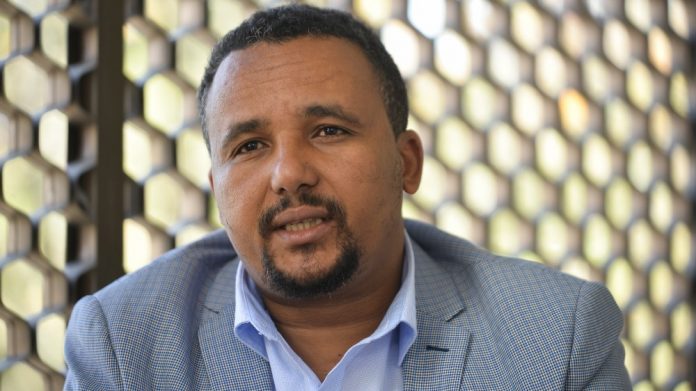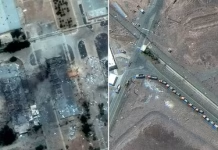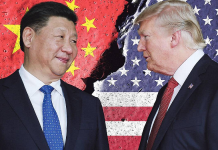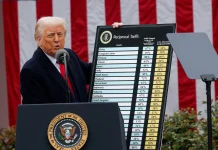[ad_1]
Concerns are growing about the health of several imprisoned Ethiopian opposition figures who launched a hunger strike some two weeks ago, with protests erupting in Oromia to demand the release of some of the region’s most prominent political leaders.
Senior Oromo Federal Congress (OFC) members Bekele Gerba and Jawar Mohammed are among some 20 people facing charges ranging from “terrorism” to illegal possession of firearms in connection with the unrest that followed the murder of a popular Oromo musician last year.
Bekele, Jawar and others began the food strike in late January in response to reports of arrests and mistreatment of supporters and family members who attend their courthouse hearings, according to their legal team.
“Four of them have already collapsed and have been taken to hospital,” Ibsa Gemeda, one of the defendants’ lawyers, told Al Jazeera. “The others are unable to have conversations or move around. Some of them have serious underlying health issues and we are worried that this could result in their deaths.”
Jawar himself has been extremely weakened by the strike he launched on January 27 and has since developed unspecified kidney problems, according to his lawyer.
.@EthioHRC visited Kaliti Correctional Facility & Kilinto Prison to monitor the situation of Jawar Mohammed & others who have remained on hunger strike since January 27, and the treatment of Colonel Gemechu Ayana & Tilahun Yemi.
Our statement below: pic.twitter.com/qW6Sw93PCA
— Ethiopian Human Rights Commission (@EthioHRC) February 5, 2021
The Ethiopian Human Rights Commission (EHRC) last week said it had visited the defendants and confirmed they were on hunger strike.
“Very close supervision is required to prevent any grave threat to their health and life,” Daniel Bekele, EHRC chief commissioner, said in a statement, adding that “reasonably justified demands of the prisoners must be addressed”.
A court hearing was cancelled last week due to the defendants being too weak to attend. It came as the youth took to the streets of several cities including Ambo and Dire Dawa to protest against the continued detention of the Oromo leaders, with a number of injuries and at least one death reported.
“We are asking for the releases of our political leaders,” Yeroon Tolassa, a student activist who attended last week’s protests, told Al Jazeera from Ethiopia’s capital, Addis Ababa. “Our political leaders and activists are jailed in the thousands.”
It was on the back of popular uprisings that first ignited among the ethnic Oromo, who constitute about a third of Ethiopia’s 112 million people, that Abiy Ahmed ascended to the Ethiopian premiership in April 2018. Promising to rid the state of its repressive nature, Abiy – Ethiopia’s first Oromo prime minister – ordered the release of thousands of political prisoners, promised free and fair elections and later won the Nobel Peace Prize for his landmark restoration of ties with neighbouring Eritrea, with whom Ethiopia fought a bloody border war between 1998 and 2000.
But for many Oromos, the initial enthusiasm has all but dissipated. Abiy’s opponents accuse him of growing authoritarian tendencies, while rights groups have expressed serious concerns over the detention of dozens of opposition members and journalists and the shutdown of independent media outlets.
Jawar, a founder of the United States-based Oromia Media Network, was an ally of Abiy and played a key role in coordinating the protests that catapulted him to power, before becoming a public critic of his administration. He and the others on hunger strike are accused of inciting the wave of violence that followed the June 29, 2020 murder of beloved singer-songwriter Hachalu Hundessa and left hundreds dead.
In August, a month before charges were announced, Human Rights Watch said the detentions and investigations were marred “by serious due process violations” while several months and multiple court hearings later, prosecutors have yet to provide evidence linking the defendants to the alleged crimes.
“The charges against them are politically motivated,” said Ibsa. “The case is motivated by the government’s desire to remove Jawar and others from the political realm, and muzzle opposition in the Oromia state.”
Government officials have previously dismissed such claims, while authorities maintain the evidence will be presented in due time.
“Criminal charges won’t be issued without evidence proving involving in a crime,” Awel Sultan, communications head at the Ethiopian attorney general’s office, told Al Jazeera. “Prosecutors aren’t to speak of the evidence while the court entertains the case. When the court begins hearing witnesses, you’ll begin to understand the nature of the evidence implicating them.”
Highly anticipated general elections scheduled for last year have been postponed until June 2021 because of the coronavirus pandemic.
The OFC wields considerable influence across Oromia and was expected to provide Abiy’s governing Prosperity Party with its stiffest challenge at the polls.
Free elections were long portrayed as the end goal of a government that had promised structural changes that would widen the political space. After the uprisings of 2015-16 eventually led former Prime Minister Hailemariam Desalegn to resign in February 2018, Abiy sealed the position on an interim basis, promising to oversee the transition to an all-encompassing democracy.
Three years later, there are fears the upcoming polls would mirror those of the past quarter-century, none of which was deemed free and fair by international standards. Over the course of last year, there have been reports of mass arrests of opposition party supporters, while parties have also been prohibited from holding rallies. In addition to key candidates being jailed, analysts say the fact that elections are not expected to be held in the war-hit Tigray region because of security fears, fuels legitimacy doubts.
“The systemic shuttering of the political opposition by arresting candidates, supporters and prohibiting rallies, shows us that the conditions for free and fair democratic elections have not been met,” Awol Allo, lecturer in law at Keele University in the United Kingdom, told Al Jazeera. “The ruling party knows that its ideology doesn’t appeal to the Oromo masses. The only way it could secure victory at the polls would be by eliminating any formidable opposition presence.”
The country’s National Electoral Board has acknowledged the issue of jailed politicians, but the board’s Chairwoman Birtukan Mideksa recently hinted that it would not be able to intervene on behalf of the jailed hunger strikers.
“We are aware that political candidates have been arrested. We’ve been able to succeed in convincing authorities to free some of them,” Birtukan said at a virtual Q&A session with social media users last week. “But we have mandate limitations. We cannot intervene on behalf of candidates accused of murder, inciting violence and whose cases are in the courts.”
With next court appearances scheduled for March 1, barring additional delays, the case has taken a toll on family members of the detainees, including Arfasse Gemeda, wife of Jawar and a human rights advocate.
“It’s been very difficult being physically far away,” she told Al Jazeera from the US, where she resides. “Especially during this hunger strike. As the days go on, I’m afraid of what I’m going to hear when I answer the phone or check Facebook. It’s a constant state of trauma,” she added.
“Although we are not physically in jail, our minds are.”
[ad_2]
Source link











